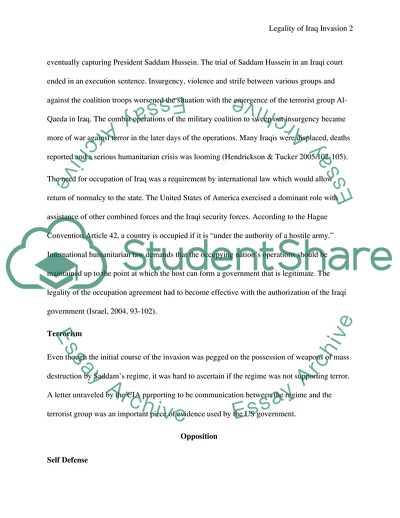Cite this document
(Legality of Iraq Invasion Coursework Example | Topics and Well Written Essays - 1500 words, n.d.)
Legality of Iraq Invasion Coursework Example | Topics and Well Written Essays - 1500 words. https://studentshare.org/politics/1741144-was-the-iraq-invasion-legal-under-intrnational-law
Legality of Iraq Invasion Coursework Example | Topics and Well Written Essays - 1500 words. https://studentshare.org/politics/1741144-was-the-iraq-invasion-legal-under-intrnational-law
(Legality of Iraq Invasion Coursework Example | Topics and Well Written Essays - 1500 Words)
Legality of Iraq Invasion Coursework Example | Topics and Well Written Essays - 1500 Words. https://studentshare.org/politics/1741144-was-the-iraq-invasion-legal-under-intrnational-law.
Legality of Iraq Invasion Coursework Example | Topics and Well Written Essays - 1500 Words. https://studentshare.org/politics/1741144-was-the-iraq-invasion-legal-under-intrnational-law.
“Legality of Iraq Invasion Coursework Example | Topics and Well Written Essays - 1500 Words”. https://studentshare.org/politics/1741144-was-the-iraq-invasion-legal-under-intrnational-law.


